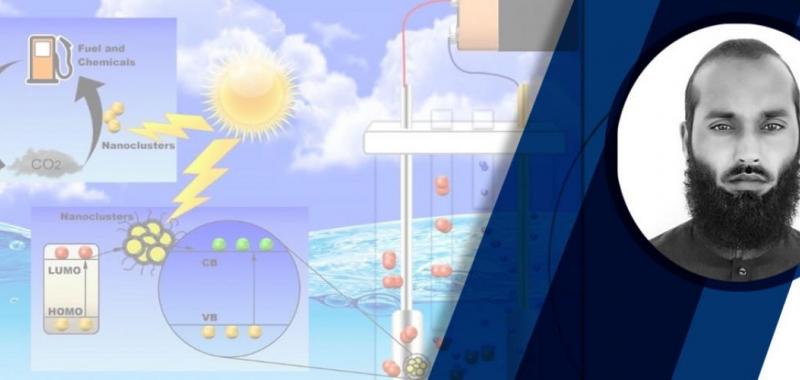
Dr. Akhtar Munir, the 5th PhD graduate from the Department of Chemistry and Chemical Engineering at the Syed Babar Ali School of Science and Engineering (SBASSE) has made significant progress in the development of highly effective catalysts that aid the production of hydrogen from water.
Traditional energy sources such as gasoline, diesel, natural gas, and other fossil reservoirs are not only diminishing but also leave a colossal carbon footprint, causing severe damage to the environment. Therefore, scientists across the globe have been striving to uncover alternate and renewable energy resources - which is why Dr. Munir’s findings hold immense significance.
Dr. Munir’s research is based on the practicality of utilising water as an energy source. Water has the potential to be an abundant and sustainable source of energy if converted back to one of its constituents, i.e., hydrogen, which is a green fuel with the highest energy density. It can also be fed to a fuel cell for the production of electricity, along with its use as a precursor for the preparation of industrially important chemicals such as fertilisers.
However, the great potentiality of water has not been utilised due to the lack of stable and cost-effective materials that can extract hydrogen from water on a large scale. The only known process is electrolysis, which is about water splitting by passing electric current, but it is an energy-intensive process and not viable for the sustainable production of hydrogen at a larger scale. Undoubtedly, there is a dire need for cost-effective, stable, and efficient catalytic materials to render the process practically viable.
Dr. Munir took this challenge and set out to develop nanoscale materials by dispersing earth-abundant metals (copper, nickel, and iron) on various porous carbon supports, to catalyse the production of hydrogen with high efficiency. Promisingly, Co nanoclusters revealed their potential for sustainable and cost-effective production of green hydrogen.
Keeping in view the outstanding performance of these readily available nanocatalysts, Dr. Irshad Hussain, PhD advisor of Dr. Munir, foresees their great potential to develop a highly efficient solar-induced water splitting module for the economical and sustainable production of hydrogen. He further believes that these novel strategies will provide guiding principles towards the designing of even more effective and advanced electrode materials for water splitting and related energy conversion processes.
The research findings of Dr. Munir have already been featured in highly prestigious international journals. Impressively, as a first author, Dr. Munir published a review article in ChemSusChem, and four research articles in ChemSusChem, ACS Applied Energy Materials, Electrochimica Acta, and Chemistry – A European Journal.
As a co-author with other MS/PhD students at LUMS, he also published research articles in Advanced Functional Materials, ChemCatChem, and International Journal of Hydrogen Energy. This original research productivity by PhD students is genuinely outstanding and rarely witnessed in Pakistan, especially keeping in view the quality of journal publications and wholly indigenous work done at LUMS.
Dr. Hussain acknowledges the support from Higher Education Commission, Pakistan (HEC), and LUMS, specifically from Syed Babar Ali, Founding Pro Chancellor LUMS, who generously supported developing state-of-the-art research and materials characterisation facilities at SBASSE.







